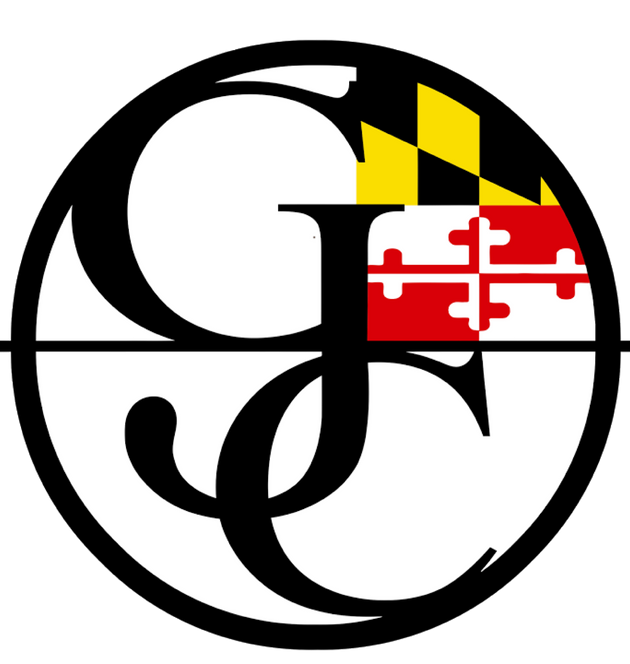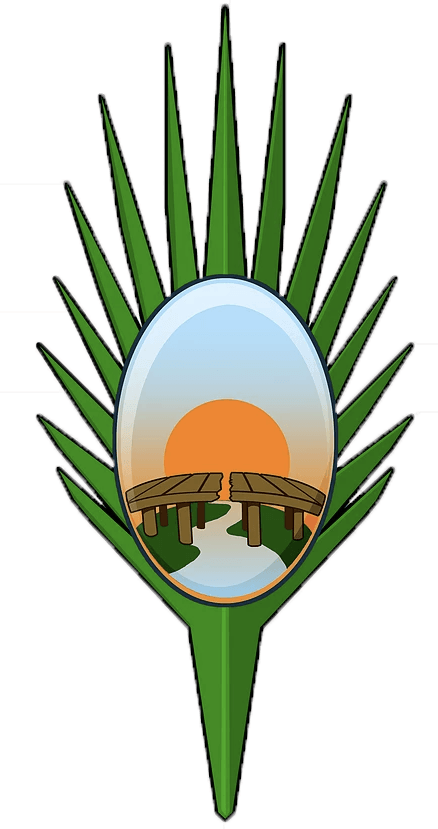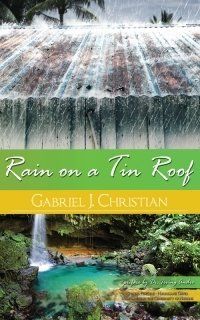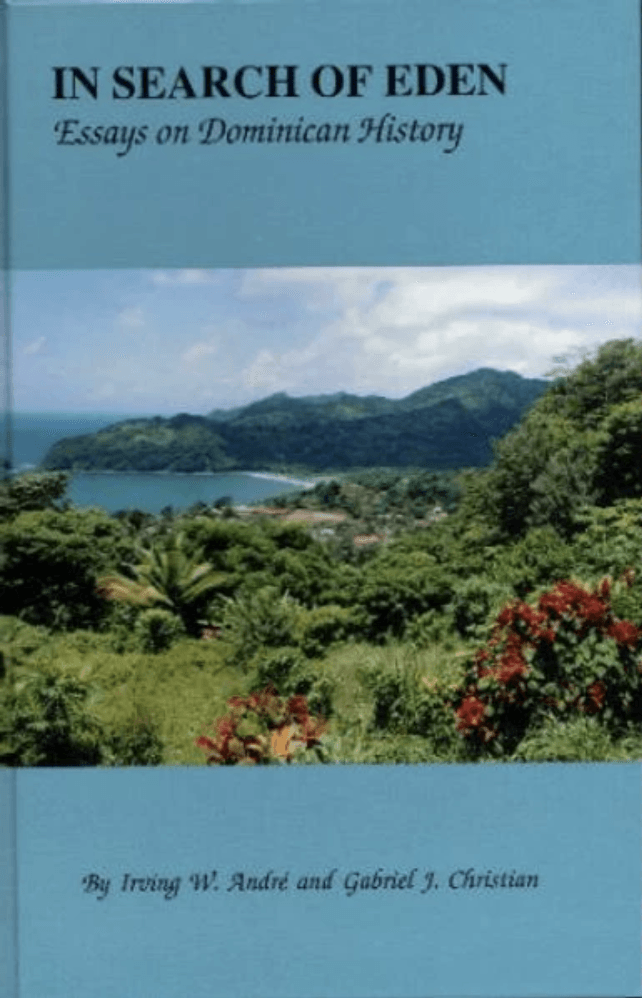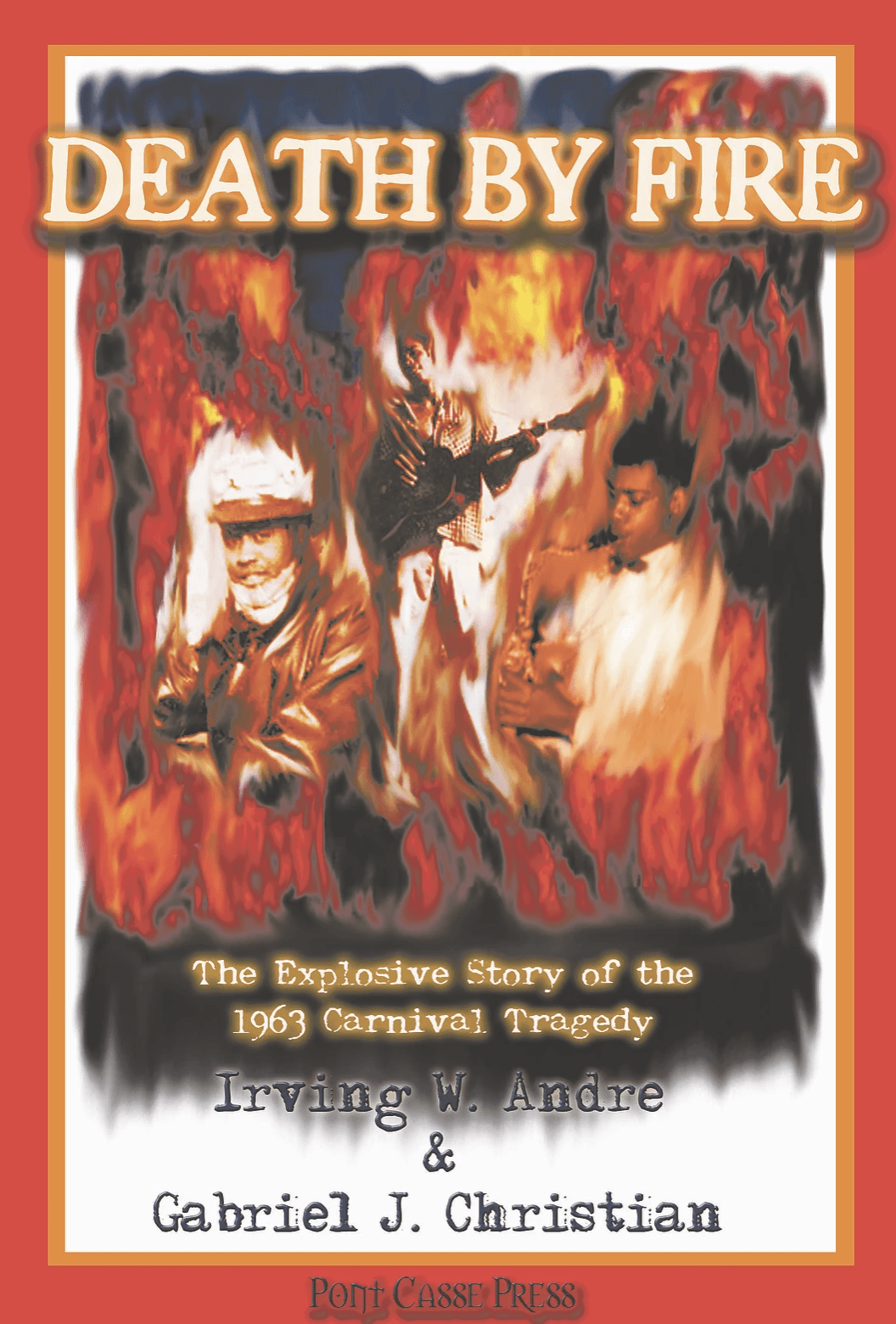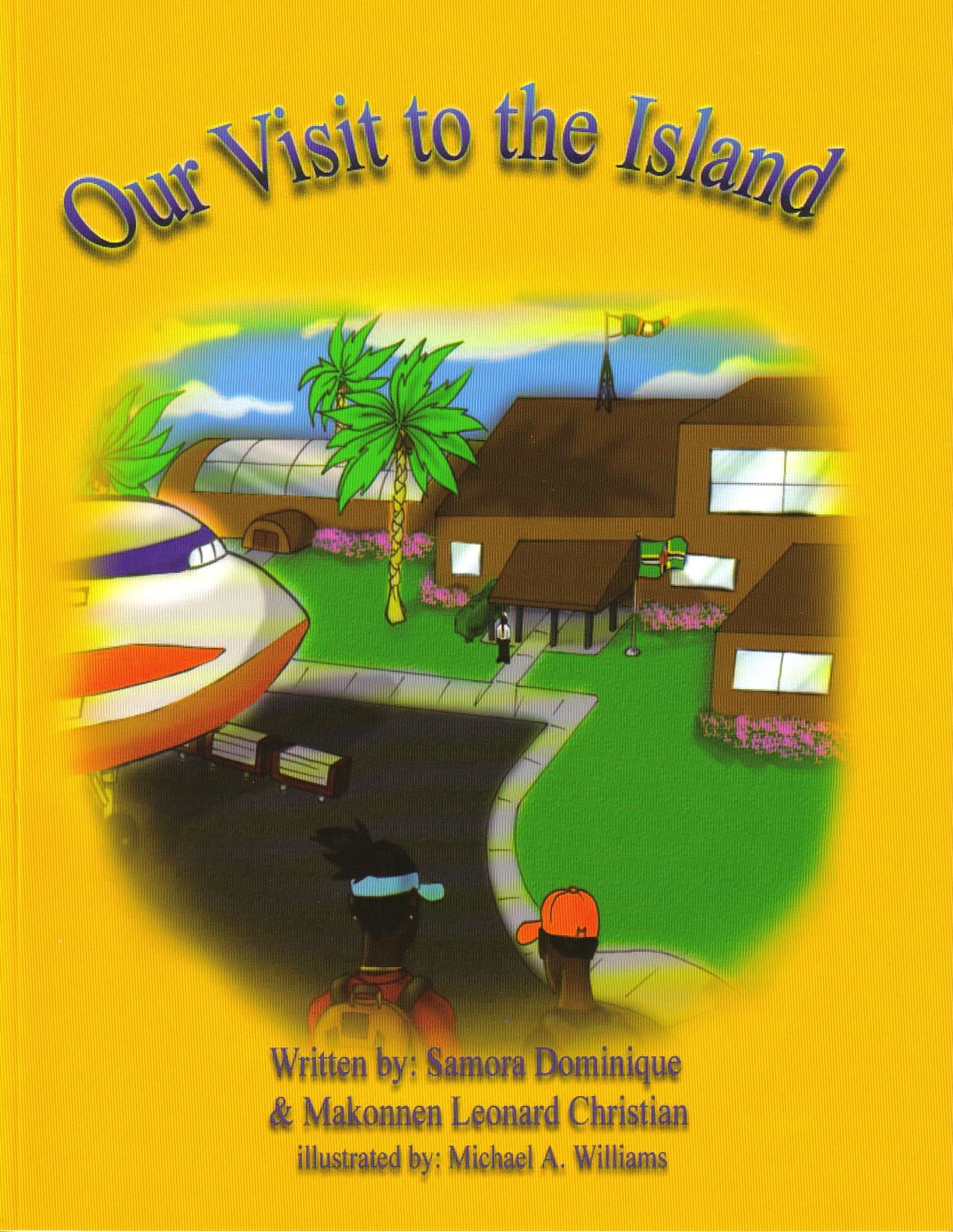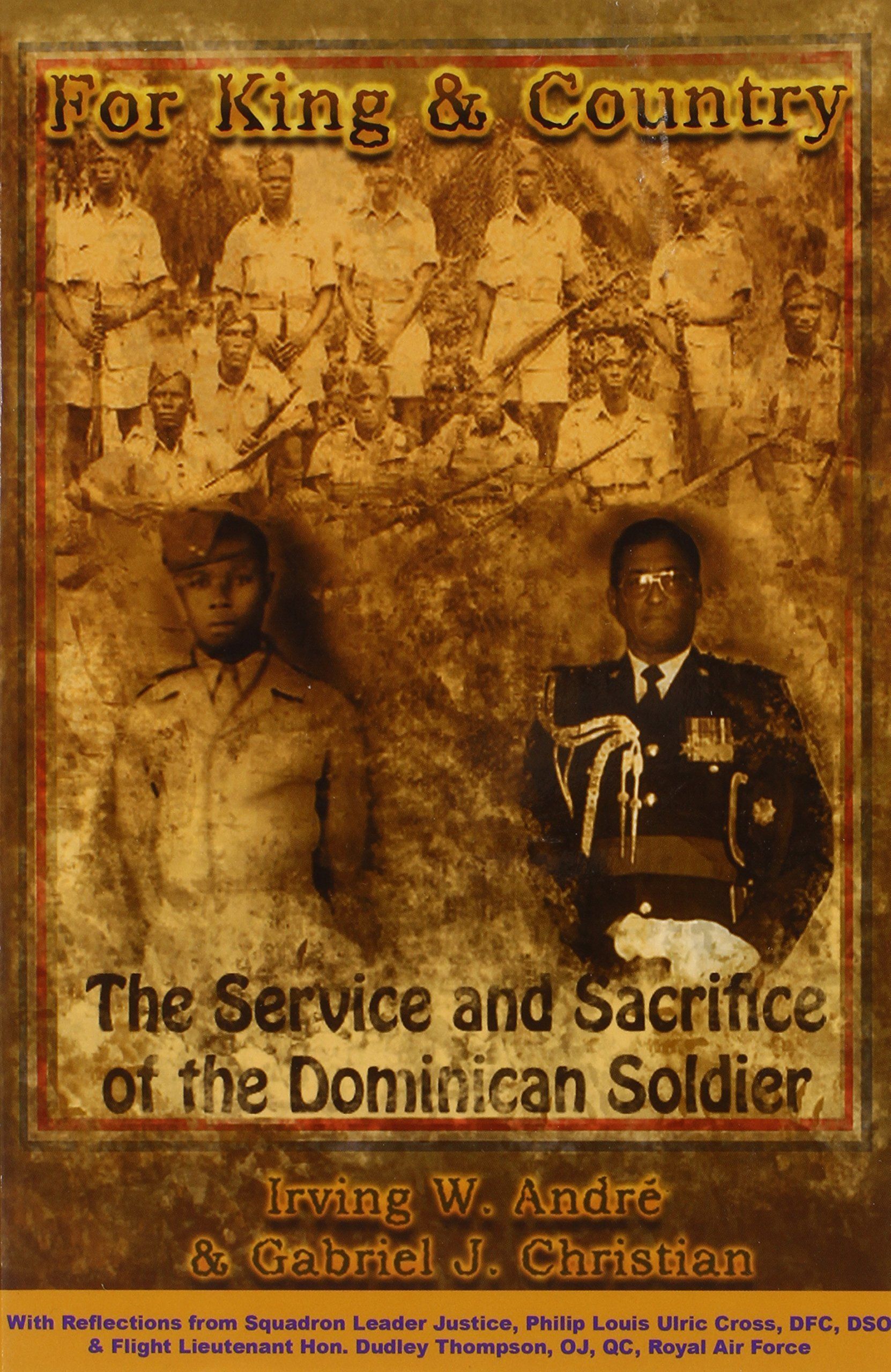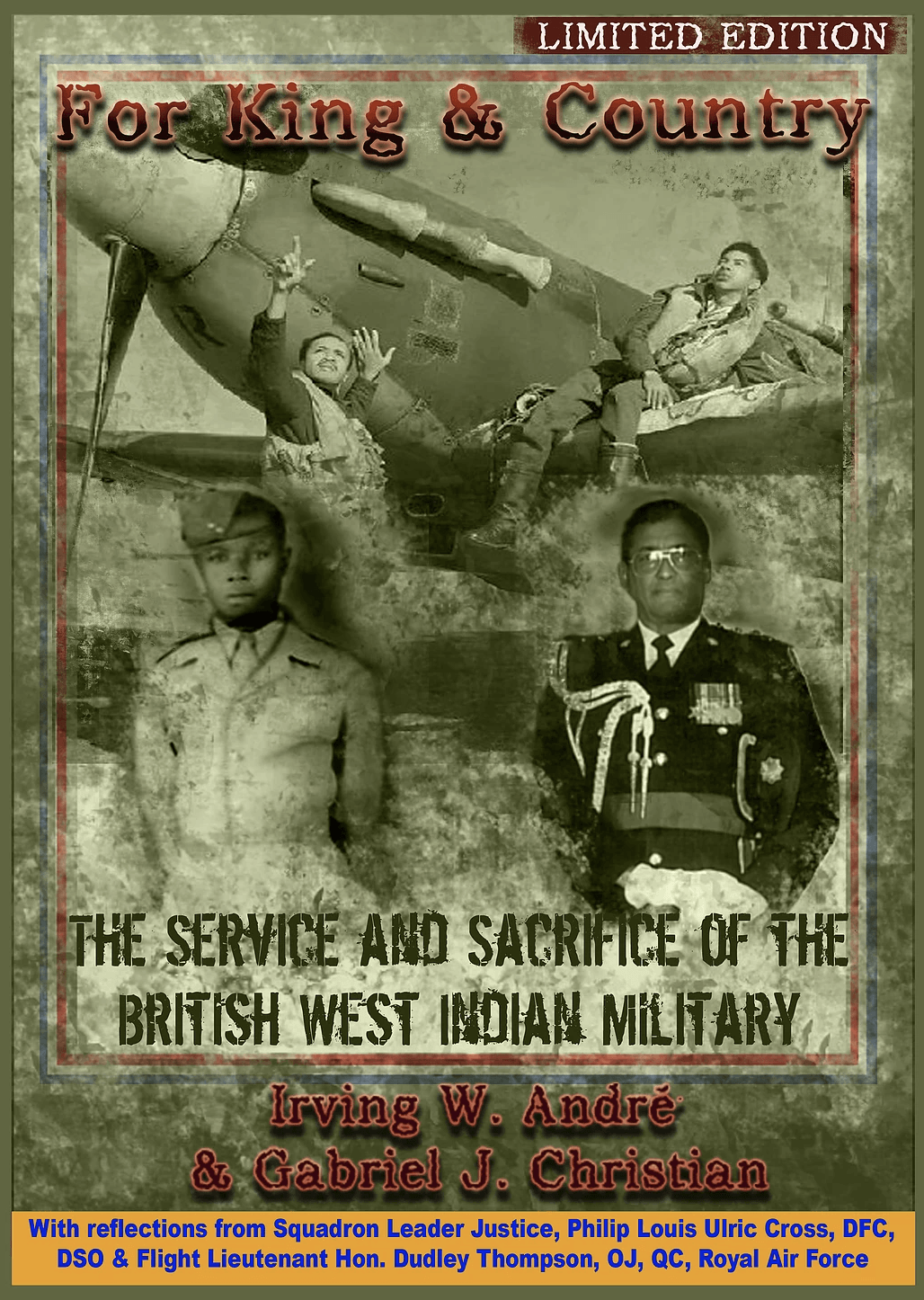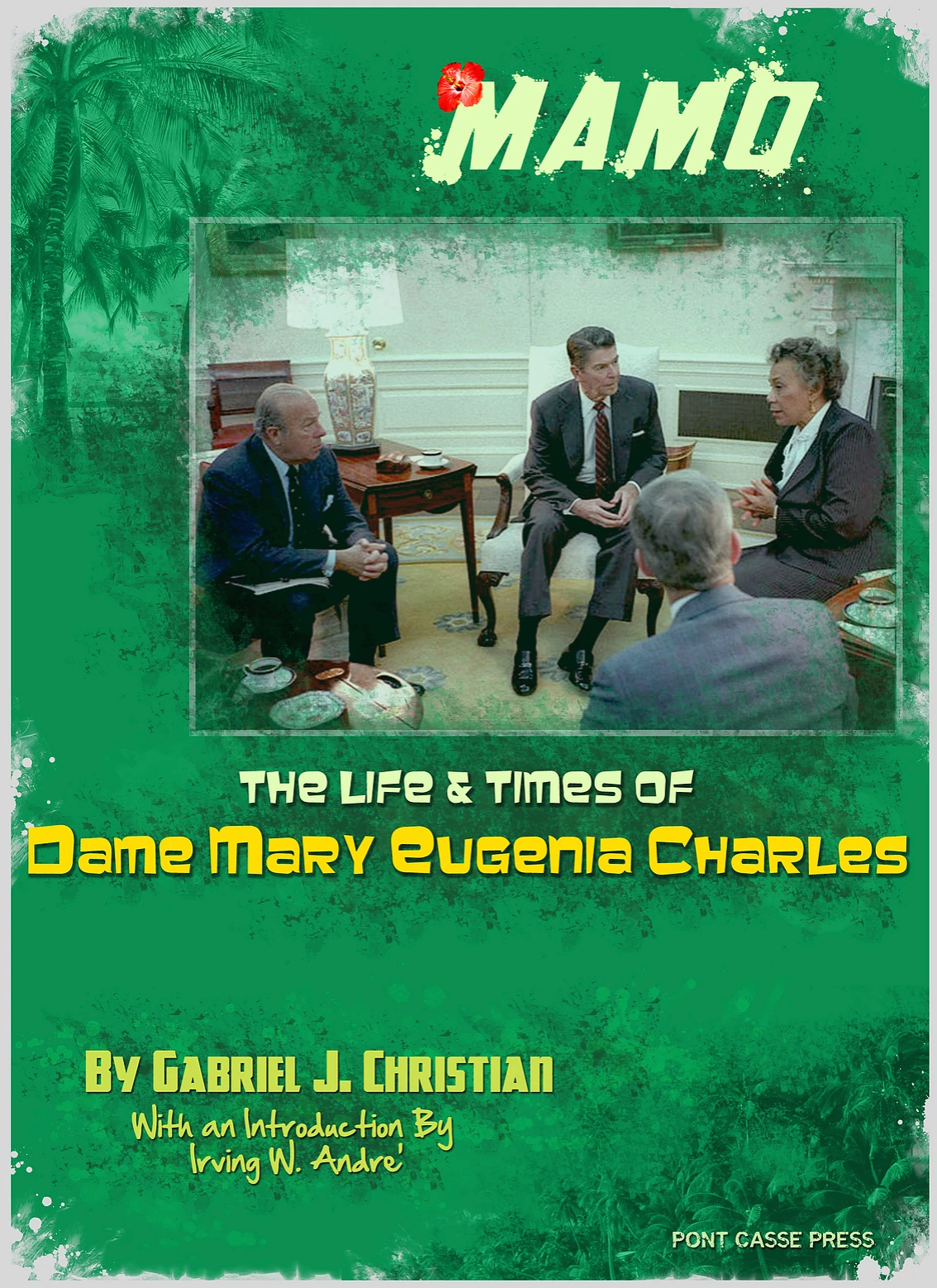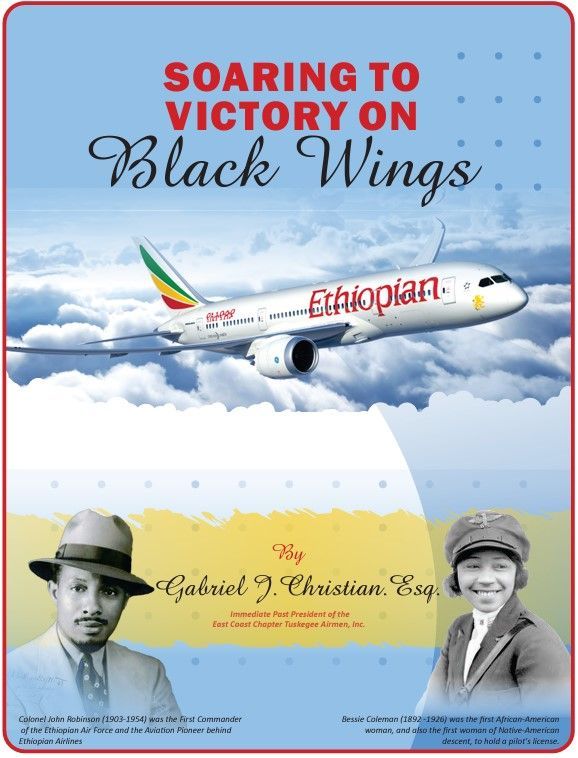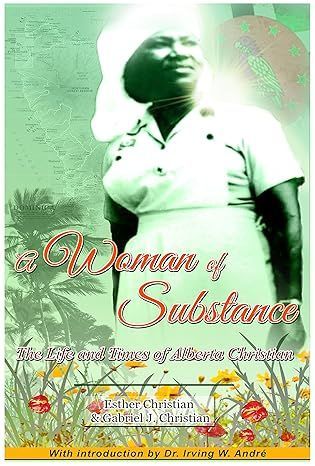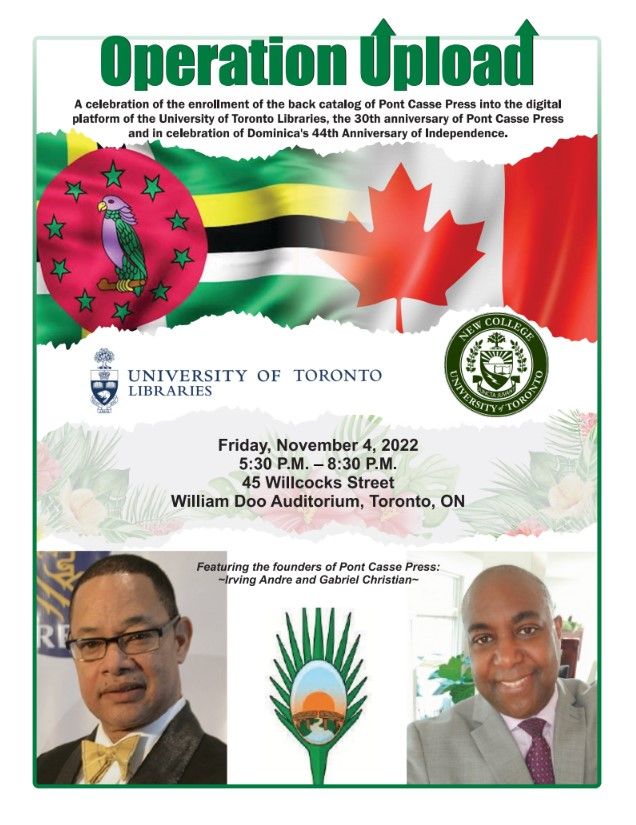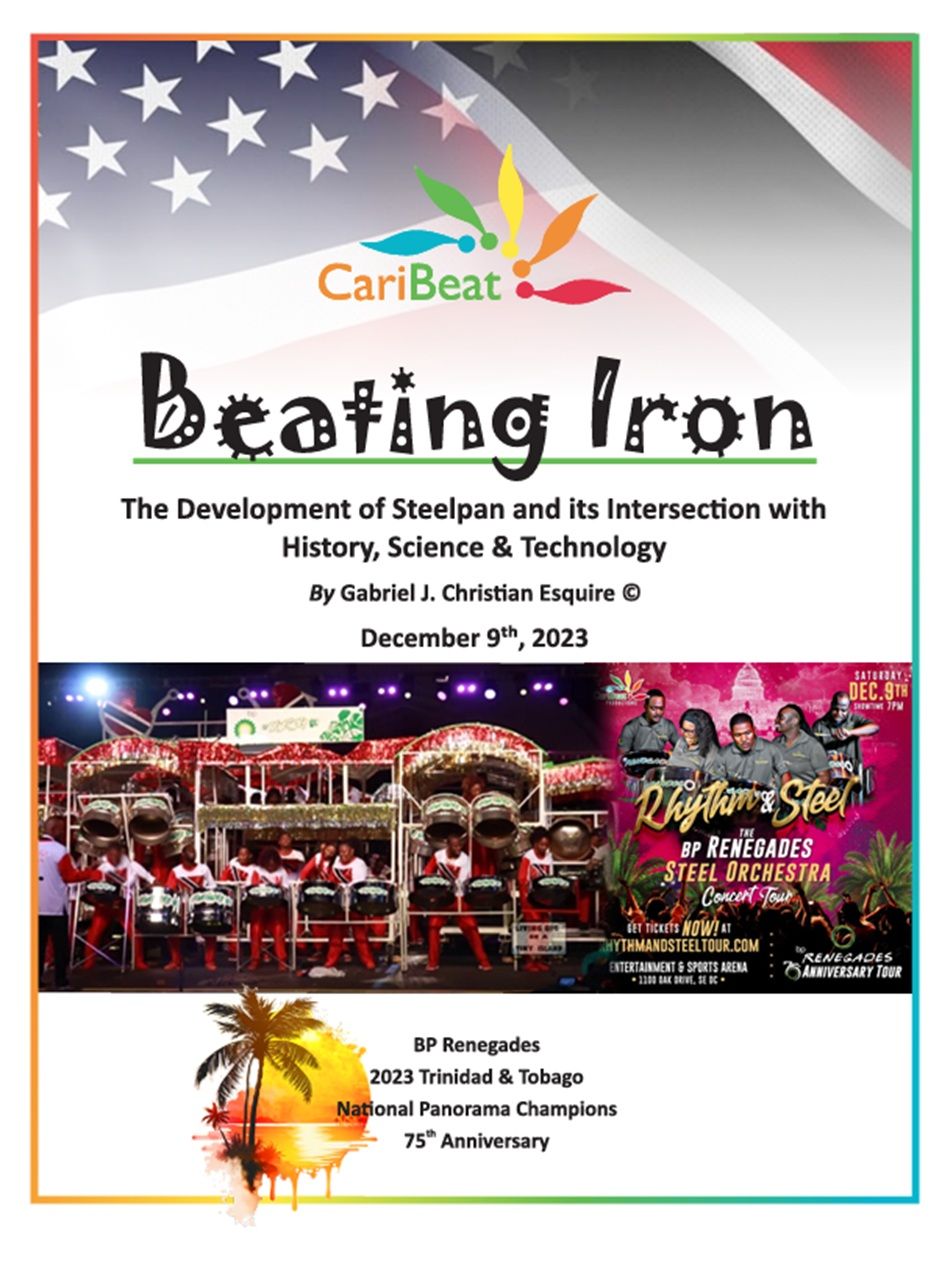PONT CASSE PRESS
In 1992 Gabriel J. Christian and his long time partner in literary matters, then Canadian Associate Crown Attorney, Irving W. Andre, launched Pont Casse Press. The first publication of that initiative at placing a Dominica/indigenous perspective on Latin American Caribbean history and literature led to Andre and Christian co-authoring, "In Search of Eden: Dominica-The Travails of a Caribbean Mini State."
In 1999 Gabriel J. Christian went on to author the critically acclaimed short story "Rain on a Tin Roof." In 2002 a second edition of "Eden" was published: In Search of Eden, Essays on Dominican History.
Since 1992 Pont Casse Press has gone on to publish more than two dozen books on the Caribbean, Latin America and Diaspora history, society and politics . Andre and Christian have also authored numerous scholarly articles and essays on history, literature, rule of law and good governance.
In 2009 Pont Casse Press organized Caribbean Glory - A Tribute to the British West Indian Soldiers and Airmen who served in the British Army and Royal Air Force in World War II. The event, organized with the assistance of Her Excellency Glenda Morean Phillip, Ambassador of the Embassy of the Republic of Trinidad and Tobago to the United States and the West Indian American Military Members Association, was held at Andrews Air Force Base. The feature speaker at the event was Baroness Patricia Scotland, Her Brittanic Majesty's Attorney General. In her historic address, she expressed the gratitude of the British people for the valiant West Indian effort in assuring victory in the struggle for freedom and democracy.
Rain on a Tin Roof
By Gabriel J. Christian
In his vibrant stories Christian captures the complex realities of a people whose long histories have been aching to be told, embellished with his own recollections and flair. Rain on a Tin Roof’s adventure-starved little boy, who dashes to a window to watch a hurricane swipe the galvanized-iron roofs off the island’s houses, is Christian.
The hormonal adolescent who five-finger-discounts his mother’s kitchen rum to set the mood for a day of carnival, hoping to “wriggle on his classmate Tessa’s behind,” is Christian. And Christian is also the protective brother who gives the evil eye to a crowd of jeering kids hurling stones and insults at his developmentally challenged sister.
Read More
Christian is eager to focus his attention on his home–and not to contribute to the brain drain that seems to plague most Caribbean countries, where children leave for education abroad but never return, physically or otherwise, to strengthen the islands that nurtured them.
In Search of Eden
By Irving W. Andre and
Gabriel J. Christian
“In Search of Eden – The Travails of a Caribbean Mini State”, which was published in 1992. In the current issue, the authors carefully detail the unfolding events in Dominica during arguably its most tumultuous years.
The collection of essays focuses on political upheaval, social unrest, constitutional change, attempted coups, and on key historical figures in Dominica. The relating of Dominica’s history is breath-taking in its level of intrigue and interest.
Death by Fire
By Irving W. Andre and
Gabriel J. Christian
On Carnival Monday, February 25, 1963, a mysterious explosion took place at the back of the Mexican Band on King George V Street, Roseau Dominica. As a result of the fire which erupted amidst the gaiety of what was a carnival parade, three promising young men-Eddie Martin, Eric Shillingford and George James were fatally wounded; nineteen others received injuries.
In what is a groundbreaking work, Andre & Christian’s Death by Fire, explores the history of carnival in Dominica and the impact of that tragic event which changed the island’s traditional masquerade and , indeed, the entire society for years to come.
Our Visit to the Island
By Samora Dominique Christian and Makonnen Leonard Christian
"Our Visit to the Island" is the first work by eight (8) year old Samora Dominique Christian, with the assistance of her six (6) year old brother Makonnen Leonard Christian.
Born in Maryland of Dominican parentage, the children visited the Commonwealth of Dominica, known as the Nature Island of the Caribbean, for the first time and fall in love with its people and culture. That love had deep roots, however, as we learn that the children drew much inspiration from their Dominican born parents Gabriel and Joan Christian, who had immersed them from early on in Dominican and Caribbean community events.
Read More
While on the island they explored the rain forest, met new friends, tasted exotic fruits and dishes, and enjoyed wading into the island's many rivers. However, they also act out their sense of civic duty by donating books at the near century old Roseau Public Library which nourished their parents, and medicines to the local general hospital.
Delightfully illustrated by Maryland graphic artist Michael Williams, with photos from Major Francis Richards among others, we are introduced to life on a fascinating and little-known Caribbean Island. Our Visit to the Island is an excellent read and a good introduction for anyone interested in the Caribbean and its people.
For King & CountryThe Service & Sacrifice of the Dominican Soldier
By Irving W. Andre and
Gabriel J. Christian
The role of the British West Indian soldier in World Wars I and II has been seldom explored. In this groundbreaking work, Irving W. Andre and Gabriel J. Christian, provides a fascinating history of British West Indian soldiers. Revealed is the little known 1802 revolt by British West Indian soldiers against slave conditions at Fort Shirley, Dominica; World War I action by West Indian soldiers against Turkish forces in the Middle East; and West Indians in Royal Air Force (RAF) service as pilots, navigators, bomb aimers and ground crew during World War II.
Read More
Seldom written of, and revealed here, is the fact that 7,000 British West Indians served in the RAF during World War II, and the purchase of dozens of aircraft for the RAF by West Indians who raised such funds under harsh economic conditions. This history is given a deeply personal touch as it is told through the words of two Dominican veterans who served in the British Army’s South Caribbean Forces: Wendell Christian and Twistleton Bertrand. We read also of Dominicans such as Harold Bryant, Osmunde St. Clair Alleyne, and L.A. McKoy who won high honors, to include the DFC, for their courage shown over the skies of battle torn Europe. This fascinating book should find a place on the shelf of every student of world history. It also contains 50 rare photographs of British West Indians at war.
For King & CountryThe Service & Sacrifice of the British West Indian Military
By Irving W. Andre and
Gabriel J. Christian
The World War II service of British West Indian soldiers Wendell Christian and Twistleton Bertrand -both of Dominica - inspired this book: For King & Country: The Service and Sacrifice of the British West Indian Military. The research into their service revealed a treasure trove of hitherto unpublished material on the British West Indian role in the British military, from the Napoleonic Wars through to World War II. That British West Indian served in Palestine during World War I doing battle against Turkish forces of the Ottoman Empire, or that German U-Boats torpedoed ships at anchor in St. Lucia during World War II will be news to the average reader of West Indian history.
Read More
Here one will read of some of the 7,000 British West Indians who volunteered to serve in the Royal Air Force during World War II: Phillip Cross, DFC, DSO of Trinidad who won high honors for bravery, having executed 80 missions over occupied Europe; Errol Barrow of Barbados and Dudley Thompson of Jamaica, who served with Bomber Command; Harold Bryant of Dominica who was posthumously awarded the Distinguished Flying Cross for bravery shown in air combat over Germany; and the legendary Cy Grant of Guyana, whose bomber was shot down over Holland and survived captivity in a German prison camp. Through the eyes of these brave West Indians who volunteered to serve king and country, we gain a better understanding of the strategic importance of the Caribbean in World War II and their postwar role in shaping the modern Caribbean. As with the African American soldiers and airmen whose valiant efforts later propelled social change, the British West Indians who served unleashed a similar yearning for self determination which would transform the societies from which they came.
Their leadership, coupled with others, eventually led to the independence of the British West Indies. More importantly, this well researched work evokes the need to maintain the discipline and integrity of such service to the nations of the former British West Indies which is so necessary for their survival.
Woman of Substance
The Life & Times of Dame Mary Eugene Charles
By Gabriel J. Christian

Woman of Substance
The Life & Times of Alberta Christian
By Esther Christian and Gabriel J. Christian
Alberta Christian's autobiography, Woman of Substance, is a refreshing addition to the burgeoning literature about the lives of Dominicans from all spheres of life who in their own extraordinary way, have significantly enriched their community. In it, Christian details her life growing up in the village of St. Joseph, her family's struggle to survive during World War II, her life as a teacher, wife and mother and her vicarious pleasure as the fruits of her labour are realized through the extraordinary success of her children.
Read More
Christian's autobiography, in many respects, does not cover virgin territory. Several prominent Dominican women, most notably authors, Jean Rhys, Phyllis Shand Allfrey and Elma Napier, have written autobiographical sketches of their lives in Dominica in the late nineteenth and early twentieth century. Other writers, such as Jamaica Kincaid's Autobiography of My Mother and Marie-Elena John's Unburnable, have also written fictional stories which explore the extraordinary hold of the landscape on the sensibility of their heroines.
But whereas these works all depict the Dominican landscape as possessing a malignity or hostility which prefigures some crisis experienced by the subject or heroine, the very converse is true in Christian's autobiography. Growing up in modest circumstances in St. Joseph, a young Alberta Christian appeared to be totally in sync with her environment despite the daily hardships which threaten to circumscribe her future. Indeed, Alberta's extraordinary resistance and mettle was nursed by the very factors that conspired to abort any prospects or ambitions of many of her compatriots.
But Alberta's parents imbued their children with strong religious beliefs which gave them a quiet confidence and dedication to overcome all obstacles. When her father lost his job on a plantation, he was consumed by shame. However, rather than retreat into a dungeon of self-pity, he chose instead to farm a portion of land in the heights of his village, although there were more arable portions of available land closer to his home.
But in the anatomy of her parents' tribulations, the scalpel of corrective action was being operated on Alberta. When Alberta's father lost his job, her mother entered the work force, picking tobacco and limes on a local estate. When she fell, and broke her collarbone, Alberta's mother relied on her deeply rooted faith, reassuring her brood that "God is good" and that everything would be alright.
And so, lacking the protection of a social safety net, the John Baptiste family tarried, eking out a living with measures such as selling eats at church services and cricket matches and making charcoal. The Christian children themselves added heft to these survival efforts and in the process, forged their own success on the anvil of honest labour.
Steeped in a tradition of sacrifice, frugality and religion, Alberta Christian would grow up, marry into a well-known musical family in Dominica and imbue her own children with the qualities and belief system which molded her as she progressed from childhood to adulthood.
In her husband, Wendell, Alberta found a soul mate whose own tremendous sense of civic duty matched her own. Wendell Christian, whose life is chronicled by son, Gabriel, a prominent barrister in Maryland, U.S.A., in his 2009 book, For King & Country, enlisted in the British military during World War II and afterwards was a senior officer in the Dominica Fire Services for decades before his retirement.
This is a riveting story of endurance, faith and good works, amidst a sea of adversity, is a timely reminder to all readers of the importance of duty, the importance of strong family discipline, and unselfish service to community.
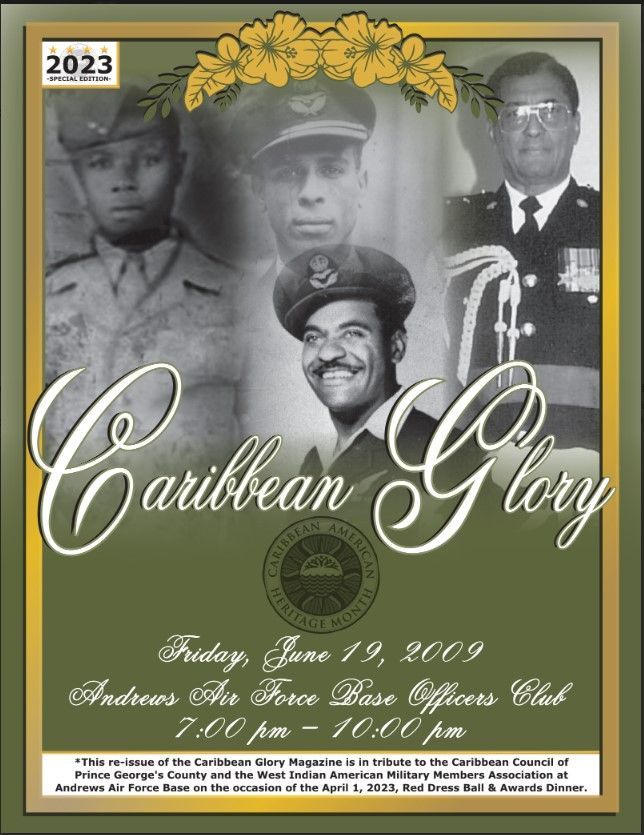
Caribbean Glory
2023 Special Edition
By Gabriel J. Christian
Caribbean Glory Tribute to the British West Indian Military, to which we invited Dudley Thompson. He was the link between Operation Black Carlota and the West Indian Student Union of 1940s London, several of whose members had come to power in the 1960s and 1970s and led the drive toward independence of the British West Indian territories.
Who were they? Michael Manley, Prime Minister of Jamaica; Errol Barrow, Prime Minister of Barbados; and Forbes Burnham, President of Guyana. Dudley served in Manley's cabinet. Their provision of logistical support for Operation Carlota led to the attempts to unseat Manley, the bombing of Cubana Airlines Flight 455 (with all 76 passengers killed), and the near assassination of Bob Marley, who was a fervent supporter of African Liberation, as was my generation. In 1979, the Grenada revolution took place, and then the US invaded in 1983.
Operation Upload
30th Anniversary of Pont Casse Press
By Gabriel J. Christian, Esquire
A celebration of the enrollment of the back catalog of Ponte Casse Press into the digital platform of the University of Toronto Libraries, the 30th anniversary of Ponte Casse Press and in celebration of Dominica's 44th Anniversary of Independence.

